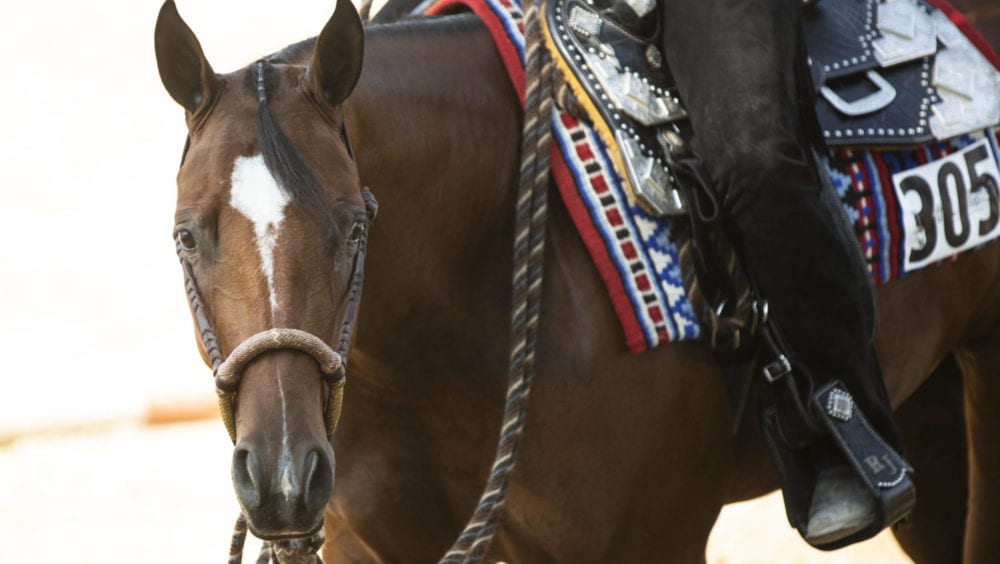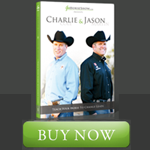Horse shopping is sometimes one of the most prolonged, stressful, and exhausting processes you can endure.
From the time you finally decide to make room in your life for a 1,200 lb addition, to the time you write the check, purchasing a new horse is a whirlwind of emotions.
By the time you master this art, it might feel like it has taken years off your life. To make matters easier, we spoke with some of the equine industry’s top trainers to see how they make this process a simple one.
Do: Set a budget
It doesn’t matter how big or small your budget is; you still need to have a set amount in mind that you’re willing to spend. When considering budgets, take into account any vet expenses that may come with the horse as well as any travel fees that may come up if you’re having the horse shipped a long distance.
Don’t: Set unrealistic expectations
Don’t expect to buy the first horse you try. While that first horse you try may be “the one.”, it always helps to consider all of your options and even try other horses. AQHA Professional Horseman Gary Trubee recommends trying out the horse you’re interested in multiple times, if feasible.
Do: Figure out your desired age, breed, and experience level
Trubee mentioned the importance of making sure the horse fits your desired purpose. It may be common sense, but when it comes to buying horses, some of that sense seems to sometimes fly out the window. “If you’re looking for a western pleasure horse, a barrel racing horse probably isn’t what you need, just like if you’re looking for a barrel horse, you shouldn’t be looking for a horse trained in western pleasure.”
Are you looking for a green project horse, or are you looking for something a little more finished? Before you look for a horse, know what you’re looking for.
Don’t: Rush the process
Though you might be tired after months of looking for “the one,” AQHA Judge and Professional Horsewoman Michelle Tidwell warns, “Don’t be in a hurry or buy on an impulse.”
If you blindly and quickly jump into sudden horse ownership, you may face conflicts later. Whether it’s with the training, soundness, or capability of the horse or issues with your trainer, conflict is bound to rise on an impulse buy.
Do: Know why you want to purchase a horse
Are you looking for a trail riding buddy or your next world champion? Know why you want a horse, whether it’s for competition, therapy, or even just a companion.
Do: Find reputable sources and people
Some sellers are willing to do whatever they have to in order to get a check in their hand. Be sure to communicate with your trainer about any horses you’re interested in and tell them who is selling the horse. Trubee says, “Not all sellers who aren’t professional horsemen are unreliable, just like not all professional horseman are completely reliable.”
Don’t: Overlook red flags
Every time you try a horse, look for signs of lameness, drugging, or bad habits. When you get to the facility where the horse is kept, is the horse already saddled and sweaty? Does it have any marks from aggressive forms of training like bit and spur rubs or marks from equipment like hobbles or whips?
Do: Consider bloodlines
Some horses have certain hereditary traits seen throughout generations of the same bloodline. Though you shouldn’t make your decision solely on bloodlines, good or bad, it’s always important to consider them. Tidwell says, “Many full or partial siblings are not the same. Some are better than others, and some aren’t.”
Don’t: Buy the horse for its looks or color
Maybe this horse reminds you of your first show horse, or perhaps you are set on purchasing a red roan. Whatever the circumstances, a horse’s looks should never be the sole deciding factor when you’re looking for your new equine addition.
Do: Your homework
Tidwell says it’s always important to do your research, “If the horse has been shown, look at show records.” You cannot be over-educated when it comes to where your money is going.
Don’t: Show up unprepared
Have a list of questions and concerns you have for the seller ready to go. Make sure you have any spurs, crops, gloves, etc. with you and something to take down any notes if needed, like feeding and medical routines.
Do: Try the horse (preferably with your trainer)
Tidwell says the best way to know if a horse is right for you is to ride it yourself. Watching a video or hearing from someone about the horse isn’t clear enough insight as to whether this horse will work for you. Trubee says if your trainer cannot come with you, get someone to video. Get a visual of how you look on the horse and be prepared to share it with your trainer.
Don’t: Be afraid to work with the horse
Ride the horse like you already own it. If you don’t push the horse and ask it the hard questions when you try it, you won’t be able to see how you’ll perform as a team in the future. Trubee says it’s essential to see what the horse’s personality is like, saying, “Timid riders and really strong horses usually aren’t a good match.”
Do: Ask questions
AQHA Professional Horsewoman Nancy Cahill says, “Call people who live around where they show the horse. Hopefully, they will give an honest opinion and not one based on not liking the trainer or owner. You have to filter what you are told. Sometimes having another trainer call is better than doing it yourself.”
Don’t: Forget your limits
You may love the horse, but if it’s not realistic to purchase the horse because of its experience level or price, you need to remind yourself of what’s realistic for you. Trubee says to be honest with yourself about your skill level and to be mindful of how much horse you can handle.
Do: Talk to your trainer
Your trainer will likely notice things that you’ll overlook, whether that’s a scam in the making or just underlying, hard to see personality issues that the horse may have. Taking your trainer with you to look at the horse or at least talking to them and sending a video of you riding the horse can help you make the best horse purchasing decision.
Don’t: Ignore sound advice
Advice from the vet, your trainer, or even the seller, is always to be considered. Don’t ignore the suggestions from the professionals around you when it could come at a price later on.
Do: Get a vet check on the horse
After you’ve looked at the horse, considered all your options, and now you’re ready to pull out your wallet, call the vet and get a pre-purchase examination on the horse. This exam should cover a lameness test, x-rays, a teeth check, and can even have a blood draw. Before you finalize your purchase, make sure it’s not bound to fall apart with a lame or unwell horse.
Don’t: Buy a horse with poor conformation
Gary says conformation is one of the most important things to consider when purchasing a horse. “If you’re looking for a horse that will last you the longest, you need to pay attention to the conformation, but particularly the front legs.”
Do: Purchase horse insurance as soon as possible
If you’re purchasing horse insurance, do it as soon as possible. You never know when tragedy could strike whether your horse gets sick, injured, or dies. Anything could happen on the way home or leading up to the trip.
Don’t: Spend more on a horse than you’re willing to lose
Trubee gives this advice, admitting the inevitable by saying, “Horses get sick, injured, and they die.” Accidents occur, so don’t pay for what you won’t protect.
***
Though not every new horse purchase will work out for every person, if you keep all of these do’s and don’ts in mind as you look for your next equine addition, there should be little room for conflict. A realistic mindset, reliable support, a dependable seller, and a great horse, all make for the winning combination when you’re making your next big purchase.








